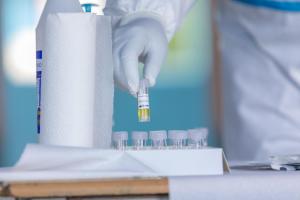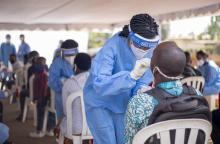Rwanda’s response to COVID-19 brings out the need to prepare and learn from practice
Wash your hands, wear your face mask and practice physical distancing. These COVID-19 safety measures by the World Health Organization (WHO) will probably go down in the World’s history as the most repeated and translated words of the year 2020.
Since December 2019, COVID-19 has imposed itself onto the World forcing everyone to rethink the word normal. It was only a matter of time before Rwanda would get its share of cases.
“I had a travel history, so when I felt the symptoms, I thought it was wiser to go get tested. I remember joking with security people at the hospital’s gate to be careful when they check my car because I was coming for a COVID-19 test.” Confides Frank Sanga. He is the seconded person to have been tested positive for COVID-19 in Rwanda.
Mr. Sanga got tested at King Faisal Hospital, one of the 4 referral hospitals in Rwanda. By February Rwanda was in full preparedness mode drafting standard of procedures and guidelines, gathering funds, putting final touches to the first treatment centre and establishing a cross sectorial National Joint Task Force (JTF). Rwanda was also conducting free COVID-19 tests weeks before its first confirmed case.
Six months later the country is closing in on half a million samples tested and sharing some of its best innovative practices in the response to COVID-19. Laboratories throughout the country are testing 24/7. Occasional drive-through mass testing is the latest addition to Rwanda’s response mechanism. 17 treatment centres are operational, but these might decrease as centres are closed when the last patient leaves and asymptomatic cases are introduced to the Home-Based Care system.
To further strengthen its chances against COVID-19, the Government of Rwanda welcomed the support of partners. An advisory team made of scientists was integrated to the JFT and development partners chipped in with donations of much needed medical and non-medical equipment and supporting response in various areas.
In addition to thermostats, reagents, test kits and Personal Protective Equipment (PPE), WHO Rwanda availed 25 permanent technicians for all pillars in the response to accompany the JFT through the outbreak. From coordination, surveillance, case management, data collection, logistics, Infection Prevention Control (IPC), laboratory to risk communication and community engagement, WHO Rwanda team supported the development of COVID-19 tools and guidelines, implementation of activities on the field and reporting.
While hopeful for a global solution and equitable access to COVID-19 tools, the pandemic is a reminder to invest in stronger health systems and risks undoing the gains made in health and other sectors. Rwanda as of 23rd September counts 4711 confirmed cases with a 63% recovery, 1.8% test positivity and 0.6% death rates.




